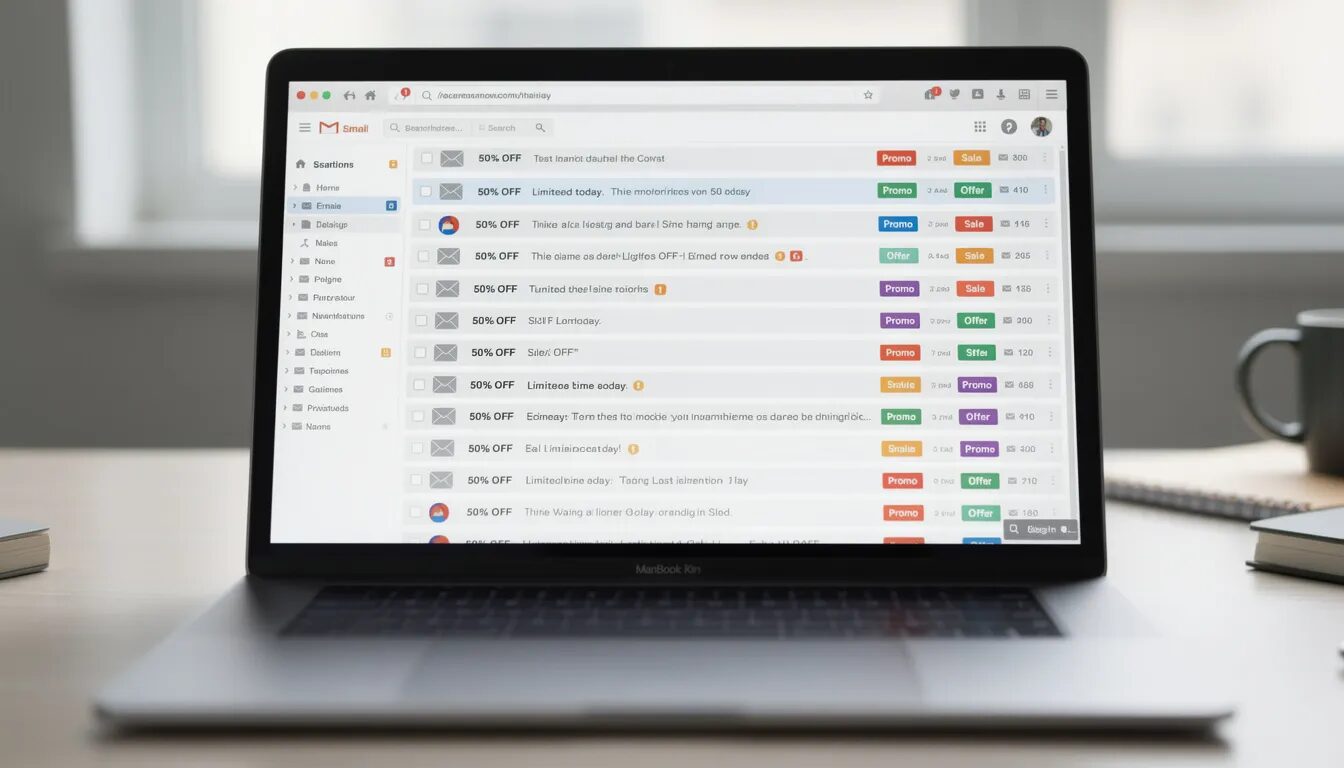
How Local Businesses Can Use Email to Compete with Giants: Best Tips and Strategies
Looking to compete with industry giants? Local businesses can use email to build strong customer connections and drive growth. This article shows how local businesses can use email to compete with giants by maximizing email marketing through practical tips and strategies tailored for local success. In today’s digital age, email marketing is especially important for local businesses to stay relevant and effectively reach their audience.
Introduction to Email Marketing
Email marketing is a powerful tool that enables local businesses to connect directly with their customers and foster lasting customer loyalty. In today’s digital age, where consumers are bombarded with messages from all directions, email marketing stands out as an effective and affordable way to reach your audience. With most customers preferring to receive marketing communications via email, businesses can use this channel to deliver personalized messages that resonate with their audience’s interests and needs.
By analyzing customer behavior and preferences, local businesses can craft targeted email campaigns that drive engagement and boost sales. Email marketing allows businesses to share updates, promote special offers, and build relationships with customers at every stage of their journey. With its high return on investment and ability to nurture customer relationships, email marketing is an essential strategy for any business looking to grow and succeed in a competitive market.
Key Takeaways
- Email marketing empowers local businesses by fostering direct customer connections, promoting loyalty, and delivering impressive ROI.
- Personalization, segmentation, and effective subject lines are key strategies for creating engaging email campaigns that elevate local customer engagement.
- Integrating email with social media and content marketing maximizes reach and effectiveness, establishing local businesses as community-driven experts.
Understanding the Challenges of Competing with Big Competitors
Small businesses often find themselves up against industry giants with billion dollar budgets and massive reach. This stiff competition can seem daunting, but small businesses can compete—and even win—by leveraging their unique strengths. Unlike big brands, small businesses are agile, authentic, and able to quickly adapt to changing customer needs. By focusing on niche markets and delivering high-value, personalized experiences, small businesses can turn satisfied customers into loyal advocates.
Building a strong online presence is key to establishing a competitive edge. Small businesses that understand the challenges of competing with big competitors can develop smart strategies to stand out, connect with their community, and build lasting relationships with customers. By focusing on what makes them unique and delivering exceptional service, small businesses can thrive even in markets dominated by larger companies.
Why Email Marketing is a Game Changer for Local Businesses
Email marketing enables local businesses to thrive in competitive markets by establishing a direct connection with customers, fostering loyalty over time. Unlike larger companies, local businesses can create a sense of community and long-term engagement with their clientele, making every customer feel valued and appreciated.
Email marketing offers several key benefits:
- Delivers a substantial return on investment (ROI), with businesses expecting an average ROI of $36 for every dollar spent.
- Is a cost-effective growth tool.
- Is preferred by 60% of consumers for marketing communication.
This preference allows how small businesses can compete to reach their local audience in a way that resonates and engages in the market through various advantages services.
Local businesses can stand out by offering individualized customer relationships, something larger companies often struggle to achieve. Small business owners can leverage their agility, authenticity, and creativity as a significant advantage, allowing them to compete effectively. Incorporating email marketing offers substantial benefits that enhance visibility and growth in local markets.
Ultimately, email marketing is more than just a communication tool; it builds trust, loyalty, and a strong online presence, making your business a trusted and preferred choice for local customers.
Building a Strong Online Presence
For local businesses, having a strong online presence is essential to attract and retain customers in today’s digital marketplace. This starts with a professional website that showcases your products or services and makes it easy for customers to connect with you. Utilizing local SEO strategies ensures your business appears in search engine results when potential customers are looking for services in your area.
Search engine optimization (SEO) is a critical component of building a loyal customer base. By using tools like Google Keyword Planner, businesses can identify local keywords that their target audience is searching for and optimize their website content accordingly. Engaging with customers on social media platforms further boosts your visibility and helps you build relationships with your community. By combining a well-optimized website, effective SEO strategies, and active social media engagement, local businesses can create a strong online presence that drives more customers to their door.
Crafting Effective Email Campaigns
Successful email marketing relies on strategic implementation rather than random mass messaging. Engaging email campaigns can significantly boost interactions and drive local customer engagement. Sharing valuable content through email drives traffic to blogs or websites, increasing readership and consumer interest. By using strategic email campaigns, local businesses can help level the playing field when competing with larger companies.
Effective email campaigns focus on personalization, segmentation, and compelling subject lines.
Personalization Techniques
Personalization in email marketing enhances customer experience and engagement, leading to better business outcomes. Leveraging data such as purchase history from CRM tools allows marketers to further personalize email content, ensuring messages are relevant to each recipient’s buying behavior. For example, including the recipient’s name in subject lines can boost open rates by 26%, creating personalized experiences for the audience.
Tailor content to customer behavior and preferences ensures that emails resonate, fostering strong customer relationships and loyalty.
Segmentation Strategies
Segmenting email lists significantly enhances engagement and conversion rates compared to generic messaging. Dividing your email list based on shared characteristics or customer behavior allows for tailored content and promotions.
This strategy gives small businesses a competitive edge by delivering relevant messages that resonate with niche audiences.
Compelling Subject Lines
The subject line affects nearly half of email open rates, making effective crafting crucial. Subject lines that invoke curiosity can significantly improve open rates, compelling recipients to engage with the email content.
For local businesses, this means focusing on standing out in crowded inboxes and capturing the attention of potential customers amidst stiff competition with local keywords.
Building and Growing Your Email List
Using various channels, such as social media and events, can significantly grow your email list. Promoting your email list through local SEO efforts and search engine optimization, as well as other channels, can enhance visibility and attract more local customers with effective seo strategies.
Using effective sign-up forms, leveraging social media, and engaging in local events and in-store promotions, local businesses can build trust and strengthen customer relationships while building trust. Additionally, encouraging new subscribers to read reviews from satisfied customers can help build trust and credibility.
Using Sign-up Forms
Effective sign-up forms should be visually appealing and match your website’s aesthetic to encourage more subscriptions. Clear and compelling call-to-action prompts can also increase subscription rates.
Positioning sign-up forms on various pages of your website and using pop-up forms can effectively capture email addresses from visitors.
Leveraging Social Media
Promoting your email newsletter on social media can broaden your reach and attract potential subscribers. Targeted social media ads can drive traffic to your email sign-up form and increase subscriptions.
Tapping into existing audiences on social media platforms allows local businesses to rapidly grow their email lists and enhance customer loyalty.
Local Events and In-Store Promotions
Collecting email addresses during community events helps build a local subscriber base interested in your offerings. Engaging with potential customers during local events and in-store promotions can effectively gather email addresses and expand your list.
These customer interactions grow your email list and strengthen customer relationships and build relationships and loyalty.
Enhancing Customer Relationships Through Email
Email marketing allows direct communication with clients, fostering personal relationships crucial for service-oriented businesses. A strong email list enables direct communication, increasing customer loyalty and engagement.
Providing exceptional customer service through email helps local businesses stand out from larger brands by offering a more personalized and helpful experience.
Retaining existing customers through email marketing significantly reduces costs compared to acquiring new ones. Consistent email communication positions businesses as trusted experts, sharing valuable insights and success stories to educate customers.
Personalized Follow-Ups
Sending personalized follow-up emails enhances customer retention by making clients feel appreciated after their purchase. Personalized thank-you emails post-purchase significantly enhance customer loyalty.
These follow-ups encourage customers to return, fostering a loyal customer base, and increasing repeat business.
Exclusive Offers and Rewards
Exclusive offers for email subscribers foster a sense of loyalty and make customers feel valued. Providing unique offerings and exclusive discounts to email subscribers creates a sense of appreciation and strengthens customer relationships, turning them into loyal advocates.
Offering incentives like raffles or discounts during in-store events motivates participants to subscribe to your email list.
Sharing Customer Testimonials
Incorporating customer testimonials in email campaigns builds customer trust and credibility among potential buyers. Positive reviews from satisfied customers build trust and reinforce the credibility of your products.
Sharing customer testimonials increases the likelihood of new customers engaging with your business to win customers.
Competing in the Digital Landscape
To compete online, local businesses must be proactive and creative in their marketing efforts. Leveraging analytics tools helps businesses understand customer behavior and tailor their marketing strategies for maximum impact. Encouraging user generated content, such as reviews and testimonials, not only builds trust but also increases customer interactions and engagement.
Effective email campaigns remain a cornerstone of digital marketing, allowing businesses to build relationships with niche audiences and deliver content that speaks directly to their needs. By focusing on educating customers and providing value through social media channels, local businesses can establish a strong online presence and foster customer loyalty. These strategies help local businesses win customers from larger competitors and maintain a competitive edge in the digital marketplace.
Analyzing and Optimizing Email Performance
Unlike traditional advertising, email marketing provides measurable results, allowing businesses to refine their marketing strategies. A/B testing can significantly enhance email campaigns by identifying what resonates best with the audience.
Continuous use of analytics tools enables businesses to gather insights for optimizing future email campaigns, making analytics tools a powerful tool for improvement.
Key Metrics to Monitor
Open rates indicate how many recipients engaged with an email, providing insights into subject line effectiveness. Click-through rates measure the percentage of recipients who engage with links in the email.
Conversion rates track the percentage of recipients who take a desired action after engaging with an email, providing a clear picture of campaign success.
A/B Testing
A/B testing different email elements, such as subject lines and calls-to-action, helps identify which variations perform best with the audience. Comparing different versions of emails allows marketers to determine which performs better.
This process can be applied to various email components to enhance overall engagement and effectiveness.
Continuous Improvement
Insights gained from analytics guide ongoing adjustments to email marketing strategies, enhancing engagement and competitiveness. Regularly analyzing email performance data helps adapt strategies to meet evolving customer preferences and expectations.
Continuous improvement ensures email marketing efforts remain effective and relevant.
Overcoming Common Challenges
Small business owners often face challenges such as limited budgets, stiff competition, and the struggle to build a strong online presence. However, these obstacles can be overcome with the right approach. Focusing on building trust with customers and delivering quality content helps establish credibility and attract a loyal customer base. Using the right tools—such as email marketing platforms, analytics, and social media—enables small businesses to execute effective marketing campaigns without a billion dollar budget.
Personalized experiences and strong customer relationships are key to standing out from larger competitors. By following actionable steps, such as regularly engaging with customers, providing valuable information, and staying focused on their goals, small businesses can build a strong online presence, drive more sales, and achieve long-term success in a competitive market.
Integrating Email with Other Marketing Channels
Small businesses can enhance their marketing efforts by demonstrating expertise and providing quality content through various channels, including email. Aligning email content with social media efforts creates a unified message, reinforcing brand awareness and customer engagement.
An integrated marketing strategy allows local businesses to utilize the strengths of each channel, enhancing their competitiveness against larger companies.
Coordinating with Social Media
Aligning email content with social media posts amplifies brand messages and increases audience reach. Incorporating user generated content and social sharing buttons in emails can boost engagement by encouraging recipients to share content on their social platforms.
This coordination ensures a consistent message and boosts overall campaign effectiveness.
Combining with Content Marketing
Email can distribute valuable content and drive traffic to your blog or website. Providing valuable content through email marketing keeps customers engaged and encourages them to return to your website.
Regularly adjusting email campaigns based on customer engagement can lead to higher traffic on your blog or website.
Cross-Promotion with Local SEO
Building an email list allows local businesses to connect directly with their customers, improving engagement and promoting local SEO. Using sign-up forms on your website can effectively capture new subscribers and enhance email list growth.
Offering exclusive discounts and rewards through email campaigns encourages customers to leave reviews, enhancing visibility in online shopping.
Summary
Summarize key points and inspire the reader to implement the strategies discussed.
Final Thoughts
Local businesses can leverage their unique strengths, such as personalized service and community connections, to compete effectively against larger companies. By focusing on strategic planning, highlighting what makes your business unique, and persevering through challenges, you can carve out a strong position in your market. Use these strategies to stand out and achieve lasting success.
© 2025, Vertical Response. All rights reserved.



